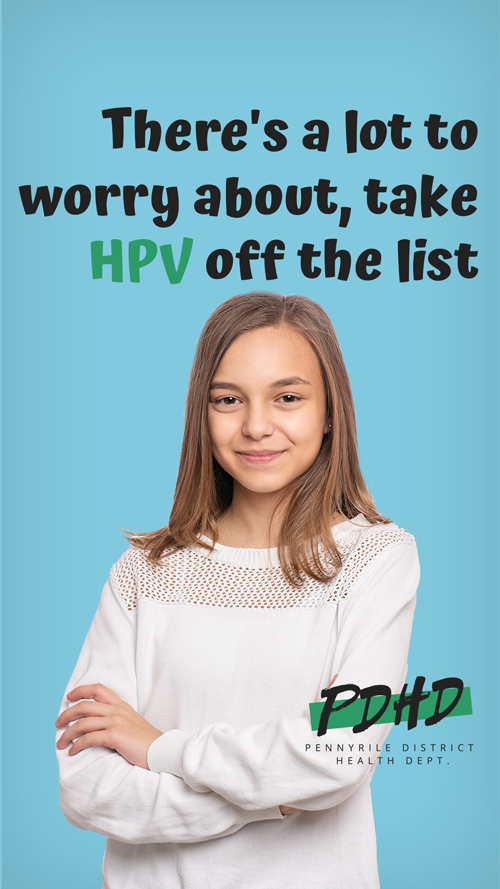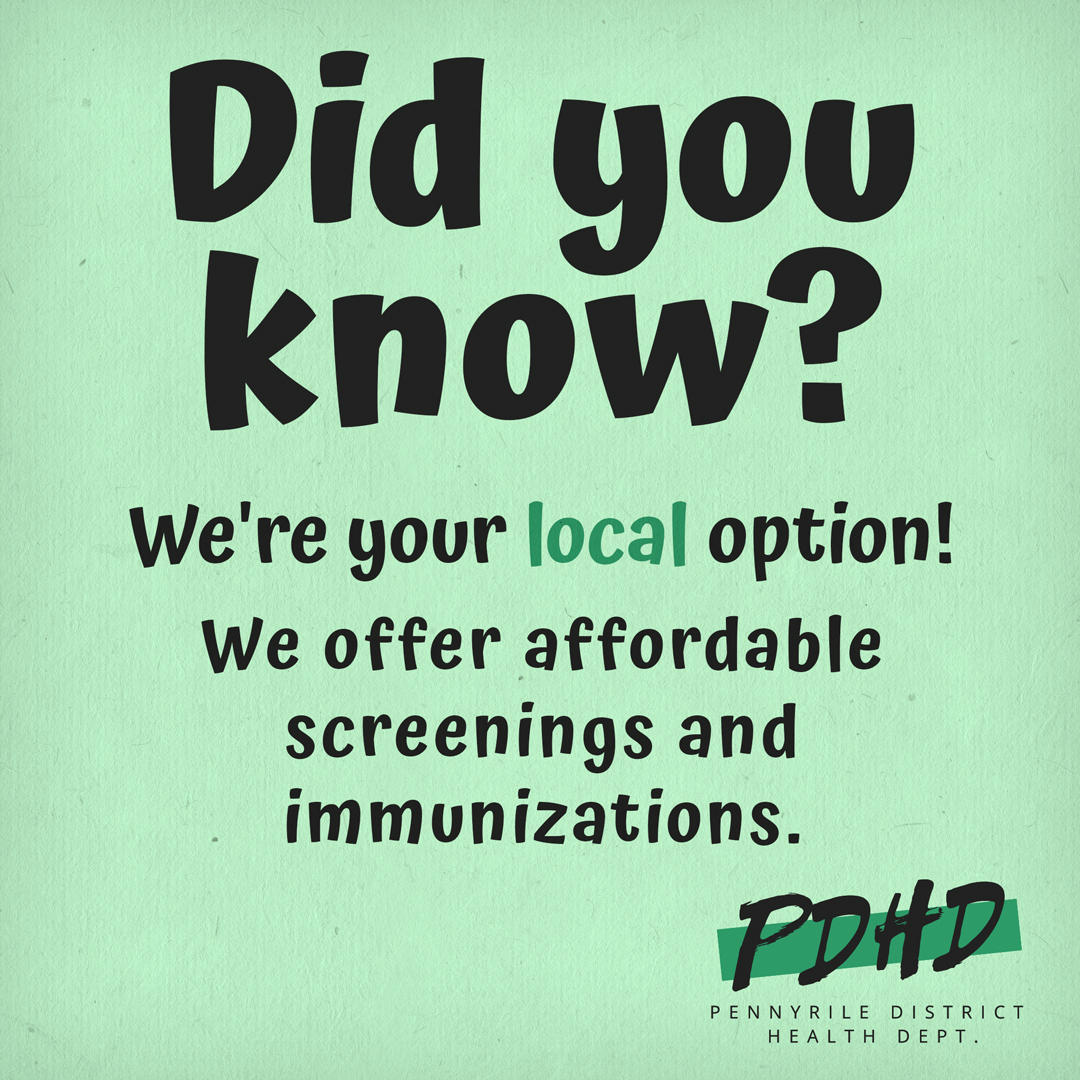There’s lots to worry about, take HPV & Meningitis B off the list
Pre-Teen, Teen & Young Adult Immunization Recommendations
Recommended Immunization Schedule for 9-26 year olds:
Every Year: Flu
11-12 years: Tdap, MenACWY, HPV (can receive up to age 45)
16-18 years: MenACWY booster, MenB (can receive up to age 23)
Is Tdap the same as the Dtap children receive?
You’re right, they do protect against the same things, but both are needed to fully protect your child. Both protect against Tetanus, Diphtheria and Pertussis (whooping cough). Babies and children younger than 7 years old receive DTaP, while older children (11-12 years old) receive Tdap.


What is HPV and why is immunization important?
If you knew you could prevent your child from getting cancer, what action would you take? This is what immunizing against HPV can provide. It protects your teen from cancer-causing infections and pre-cancers. HPV or the human papillomavirus, is very common with a high probability that nearly everyone will get HPV at some point in their lives. About 13 million Americans, including teens, become infected each year. It’s spread through intimate skin-to-skin contact such as vaginal, oral, or anal sex with someone who has the virus. Though most infections only last about 2 years, some do last longer and can cause cancers.
What types of cancers are caused by HPV?
- Cervix, vagina, and vulva in women
- Penis in men
- Anus in both women and men
- Back of the throat (called oropharyngeal cancer), including the base of the tongue and tonsils, in both men and women
For more than 15 years, scientists and doctors have monitored this series of shots to ensure it is safe and effective. Since 2006, we’re already seeing reports of a decrease in HPV infections and cervical pre-cancers. You can learn more details about HPV from the CDC.
What is MenACWY and MenB?
These immunizations protect against different types of Meningitis. You may think your teen has already been protected, but MenB may not be on your original immunization schedule. The immunization schedule is as follows:
- Meningococcal conjugate or MenACWY: 11-12 years old, booster at 16
- Serogroup B meningococcal or MenB at 16 – 23 years old
Meningitis can be life-threatening which is why we recommend the above immunization schedule. It can lead to an infection of the lining of the brain and spinal cord or to an infection of the blood. It can quickly progress, with Meningitis B being potentially fatal within 24 hours of infection. The reason young adults are so at risk is because they are often living within close quarters with one another (schools, college dorms, military barracks, etc.) It’s spread through close contact such as coughing, sneezing or kissing.
You can learn more about Meningitis from MeningitisB.com or the CDC.

Not sure about our recommended immunizations?
We welcome your questions because this is YOUR teen’s health we’re talking about. Your local health department is here to help prevent sickness first and foremost, so please give us a call.
Do you offer other services to teens?
We do! We’ve found many people don’t know that we are here for everyone in the Pennyrile district. Note, that we’re not called the “sick” department, our main goal is to help prevent infections and diseases so you live your healthiest life.
We serve every member of the community, regardless of age or income. All teens are welcome at the Pennyrile District Health Department. If you need services such as a pregnancy test, STD/STI exams and treatment, or just more information about your sexual health, we are here to help. Learn more about our teen services here.
